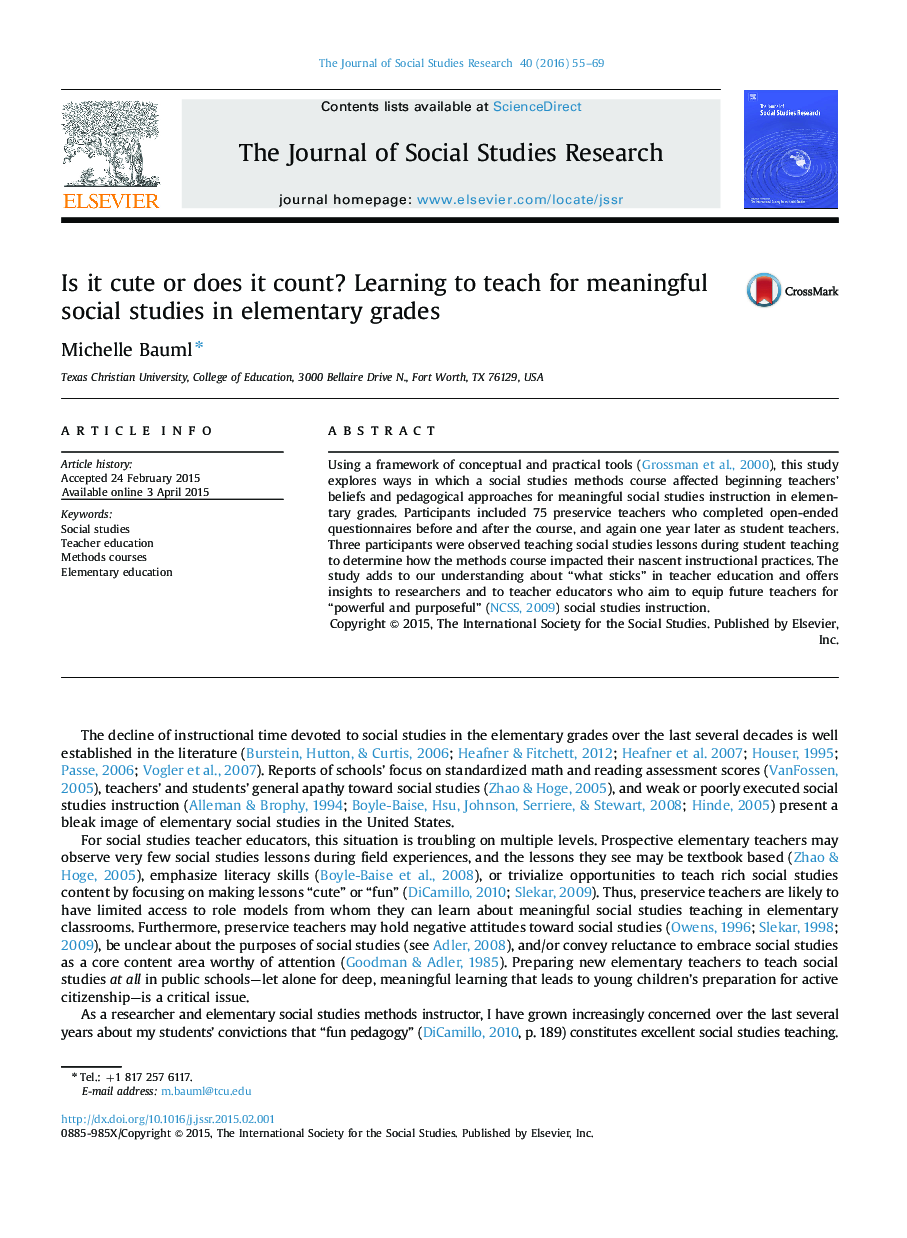| Article ID | Journal | Published Year | Pages | File Type |
|---|---|---|---|---|
| 108339 | The Journal of Social Studies Research | 2016 | 15 Pages |
•Preservice teachers’ beliefs that social studies instruction should be integrative and meaningful increased dramatically at the end of the methods course and were sustained over time.•One year after completing the methods course, few participants maintained their beliefs that social studies lessons should be challenging, developmentally appropriate, value-based, and connected to big ideas.•The methods course influenced pedagogical decisions among all three participants who were observed teaching one year after taking the course. They reported intentionally planning lessons that would be meaningful to students, and they utilized a variety of materials and pedagogical approaches intending to promote student learning.
Using a framework of conceptual and practical tools (Grossman et al., 2000), this study explores ways in which a social studies methods course affected beginning teachers’ beliefs and pedagogical approaches for meaningful social studies instruction in elementary grades. Participants included 75 preservice teachers who completed open-ended questionnaires before and after the course, and again one year later as student teachers. Three participants were observed teaching social studies lessons during student teaching to determine how the methods course impacted their nascent instructional practices. The study adds to our understanding about “what sticks” in teacher education and offers insights to researchers and to teacher educators who aim to equip future teachers for “powerful and purposeful” (NCSS, 2009) social studies instruction.
